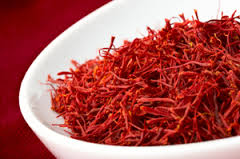Saffron For Cancer
Saffron For Cancer
Cancer is one of the leading causes of death in the worldwide. About 80% of cancer patients face death.
Recent studies suggest that saffron can have a clinical application for the treatment of cancer.Saffron
is known for its possible therapeutic effect on cancer. And, indeed, a growing body of laboratory evidence
indicates that saffron does have anticancer effects. This property was first described in papers by the
Indian scientist S.C. Nair in 1991.
Actually Saffron spice is made from the dried stigmas of the flowers of the plant crocus sativus. It is
cultivated in many countries, including France, Turkey, Iran and India. It is used in food as a spice
and yellow coloring agent. In folk and modern medicine, saffron has also been used to treat depression,
asthma, premenstrual syndrome and insomnia. Recent Studies of the anti-cancer effects of saffron have
been conducted only on experimental models of human cancers, as of September 2011. In such studies,
saffron extract was found to alleviate some of the undesirable side effects of other drugs, such as
cisplatin, used in cancer treatment, without affecting the anti-tumor action of the drugs. In addition,
saffron extracts, or crocin or crocin derivatives, can inhibit the growth of tumor cells and the
progression of the cancer while leaving healthy cells unaffected in rodent models of breast, lung
and colorectal cancers.
Crocetin, an important carotenoid constituent of saffron, has shown significant potential as an
anti-tumor agent in animal models and cell culture systems. Crocetin affects the growth of cancer
cells by inhibiting nucleic acid synthesis, enhancing anti-oxidative system, inducing apoptosis and
hindering growth factor signaling pathways. This review discusses the studies on cancer preventive
potential of crocetin and its future use as an anticancer agent.Moreover,A study in which 50mg
saffron dissolved in 100ml milk was drunk twice a day, resulted in a significant decline in lipoprotein
oxidation in people with a coronary heart disease (CAD) and proves the potential of saffron as an
antioxidant.

